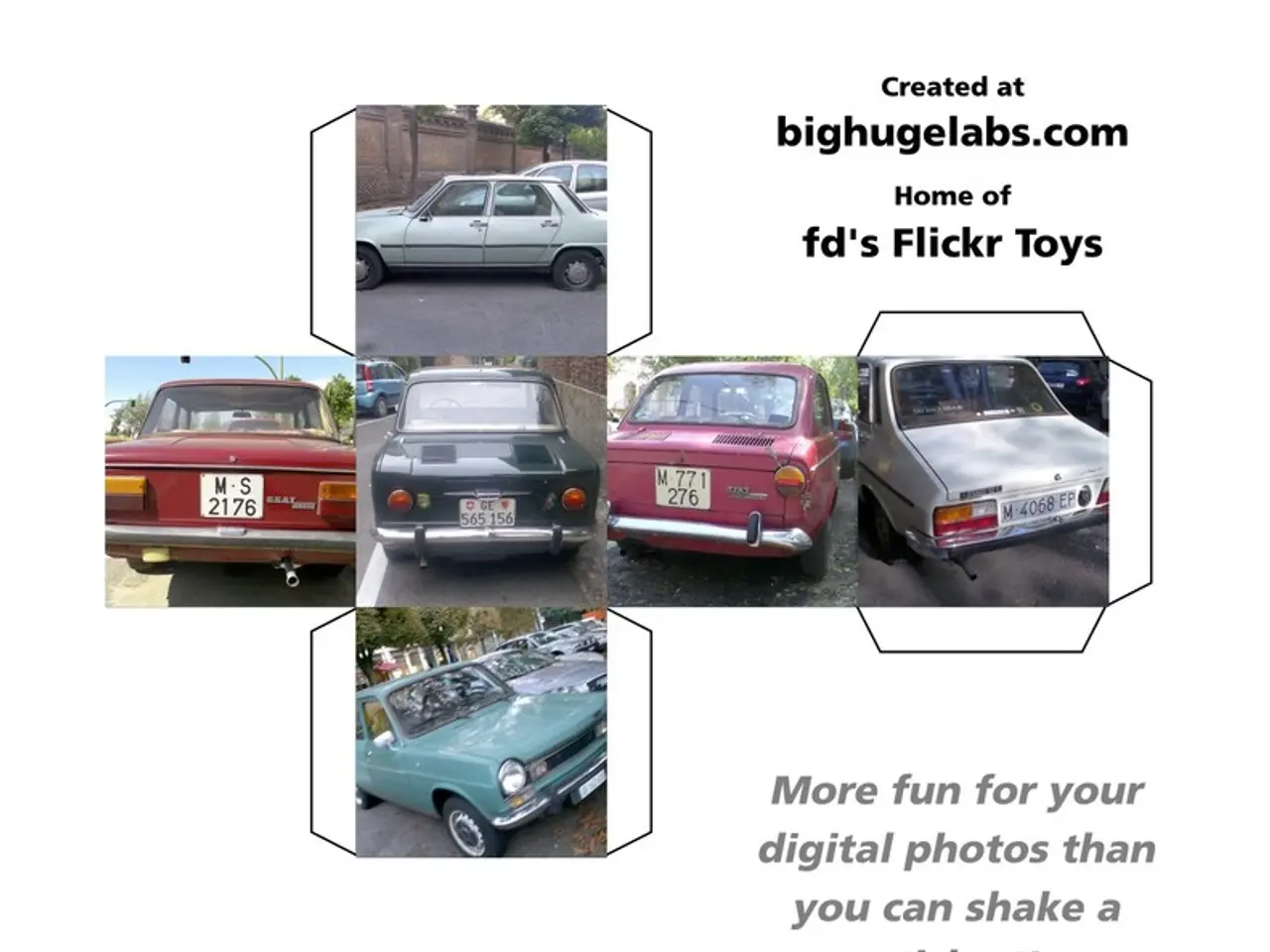Mercedes Integrating Microsoft Teams into Its Vehicles Seems Unsolicited Digital Workspace Intrusion
Mercedes-Benz Introduces Microsoft Teams in Cars: A Step Towards Integrating Work into Every Aspect of Life?
Mercedes-Benz has taken a bold step by integrating Microsoft Teams into its new CLA model, aiming to enhance in-car productivity for business users on the move. With the addition of this feature, drivers can now participate in Teams meetings while on the go, using the vehicle's built-in camera and integrated software [1][2][4].
The new Meetings app, integrated natively into the car's operating system (MB.OS), supports work collaboration tools like Microsoft 365 Copilot and Microsoft Intune for device management, aiming to make working on the road more efficient. However, this development has sparked a heated debate about the implications for driver distraction, work-life balance, and the erosion of personal space.
Concerns about driver distraction are valid, as even small distractions can dramatically increase the risk of accidents [8]. Road safety experts are uneasy about the prospect of normalizing conference calls while on the go, fearing that it could lead to increased cognitive load and potential distractions, impacting road safety [7].
Moreover, the integration of Microsoft Teams into vehicles may blur the boundaries between work and personal life, potentially exacerbating work-life balance challenges by extending work hours into commute times [2]. Psychologists often emphasize the importance of downtime, even during short drives between work and home, for mental health [5]. Cars can serve as a buffer between work and home, providing downtime for mental decompression.
The constant integration of work applications into personal spaces may turn every spare moment into another chance to work, erasing the last spaces we had left for ourselves [6]. Mercedes-Benz, however, maintains that the system is designed to comply with national laws and focuses on minimizing driver distraction [1][2]. For example, while the built-in camera streams the driver's video to meeting participants, the driver cannot see the meeting content or shared screens while driving, and the video stream to the driver is disabled once the camera activates to prevent distraction [1][2].
In Germany, labour laws acknowledge the issue of employees being constantly available, with measures aimed at protection [3]. It remains unclear whether a survey was conducted to determine if Mercedes owners wanted this feature [1]. The collaboration between Mercedes-Benz and Microsoft Teams is causing ripples, with some questioning whether this is the start of a slippery slope of tech infiltration into daily life, with tomorrow potentially bringing other work applications like Slack on bathroom mirrors or Zoom on refrigerators [6].
In conclusion, the integration of Microsoft Teams into cars by Mercedes-Benz is a step towards boosting productivity for business users on the go, embedding collaboration tools directly into vehicles with safety-oriented design features to reduce distractions. However, the approach raises valid concerns about driver distraction and maintaining a healthy separation between work and personal time.
References:
[1] Mercedes-Benz Newsroom. (2021, October 13). Mercedes-Benz integrates Microsoft Teams into vehicles, enhancing in-car productivity. Retrieved from https://media.mercedes-benz.com/marsmedia/global/en/news/mb-news/mb-innovation/2021/mb-news-76346-en.html
[2] The Verge. (2021, October 13). Mercedes-Benz is adding Microsoft Teams to its cars. Retrieved from https://www.theverge.com/2021/10/13/22727755/mercedes-benz-microsoft-teams-cars-productivity-work-features
[3] German Federal Ministry of Labour and Social Affairs. (n.d.). Working time regulations. Retrieved from https://www.arbeitszeiten.de/en/
[4] Microsoft. (n.d.). Microsoft 365 Copilot. Retrieved from https://www.microsoft.com/en-us/microsoft-365/business/copilot
[5] American Psychological Association. (2020). Stress in America 2020. Retrieved from https://www.apa.org/news/press/releases/stress/2020/stress-in-america
[6] The Guardian. (2021, October 14). Mercedes-Benz integrates Microsoft Teams into cars, raising concerns about the blurring of work and home life. Retrieved from https://www.theguardian.com/technology/2021/oct/14/mercedes-benz-integrates-microsoft-teams-into-cars-raising-concerns-about-the-blurring-of-work-and-home-life
[7] Road Safety GB. (n.d.). Driver distraction. Retrieved from https://roadsafetygb.org.uk/advice/driver-distraction/
[8] National Highway Traffic Safety Administration. (n.d.). Distracted driving. Retrieved from https://www.nhtsa.gov/risky-driving/distracted-driving
- The integration of Microsoft Teams into cars by Mercedes-Benz could signal a shift in the world, as technology continues to permeate various aspects of life, such as business, health, science, and lifestyle.
- health-and-wellness pros caution against the erosion of personal space and potential impact on mental health, as the blurring of work and personal life could lead to increased stress levels and reduced downtime.
- Meanwhile, workplace-wellness advocates argue for the potential benefits of integrating collaboration tools like Microsoft Teams, as it could enable healthier, more productive lifestyles, such as adhering to healthy-diets, and fostering a culture of work-life balance.
- As nutrition plays a crucial part in overall health, it's essential to understand if these features will encourage or discourage proper meal preparation and nutrition, ensuring a balanced diet during long hours of work and commuting.
- The rising influence of technology in daily life sparked concerns that it could lead to an unhealthy obsession with work, putting mental-health at risk, and making it challenging to disconnect from work even during designated leisure time.
- In addition to Mercedes-Benz, other companies might follow suit, integrating more work applications into personal spaces, ranging from Slack on bathroom mirrors to Zoom on refrigerators, drastically altering the way people live, work, and connect with each other.
- As society grapples with the implications of such advancements, it's crucial for policymakers to consider the importance of privacy, autonomy, and work-life balance in regulating regulations that ensure a harmonious coexistence of work and personal life.
- Ultimately, the debate surrounding the merits and potential drawbacks of integrating Microsoft Teams into cars by Mercedes-Benz highlights the broader concerns about technology's role in reshaping our lifestyle, health, and working conditions and the need to prioritize mental and physical wellness in an increasingly connected world.




